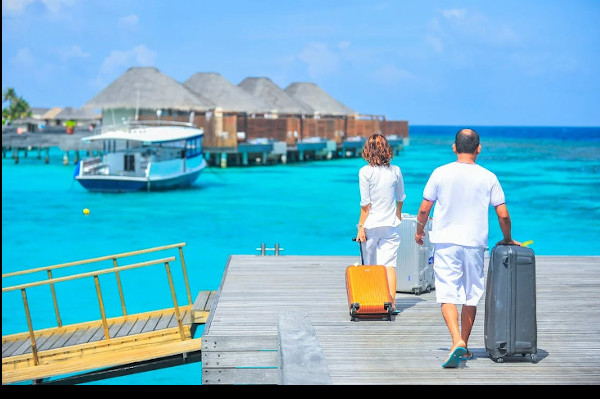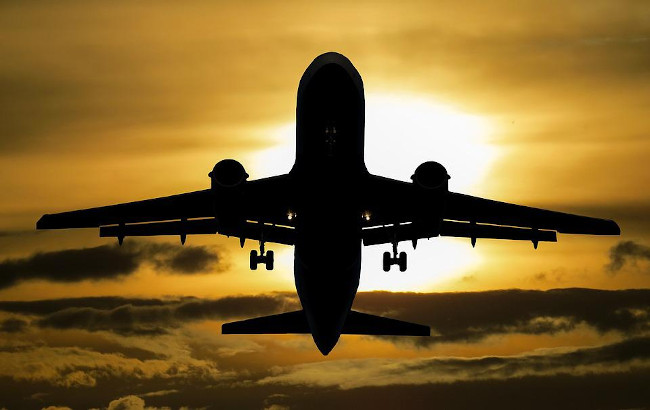Are Airlines or Hotels Greenwashing?

Is the travel industry serious about protecting the environment? Or is it just hyping negligible environmental efforts — otherwise known as greenwashing — to make a quick buck off your next vacation?
Y. Murat Ozguc has started to wonder. As the owner of Travel Atelier, a Turkish tour operator, he regularly inspects hotels in Europe that claim to be environmentally friendly. He asks them pointed questions about how they’re protecting the planet.
The answers he gets are disappointing. Hotel managers will wave at a lone solar panel on the roof or mention a recycling program, often mandated by local authorities, he says. “If even that.”
As for the cards in the bathroom that urge him to reuse his towels “for the environment,” he says he complies. But the housekeepers often remove his towels anyway.
Greenwashing — when a company says it is environmentally conscious for marketing purposes but isn’t making any notable sustainability efforts — is rampant in the travel industry. Many travel companies relaxed their sustainability efforts during the pandemic, adding sanitizing programs that increased the use of disposable or non-recyclable materials. Even today, everything seems to be wrapped in plastic.
So how can you tell if a travel company means business?
“Greenwashing is not always easy to spot,” says Joshua Zinder, managing partner of JZA+D, which focuses on sustainable design. “We’ve all seen those little cards in the bathrooms in guest rooms suggesting that you may decline to have housekeeping provide clean towels. Who really benefits from this practice? The hotel operator does, of course, since they stand to save on the energy, water and manpower related to laundry. This is a cost-saving strategy with little impact on the environment.”

The problem is that there’s no Good Housekeeping seal of approval for green travel companies. The closest may be LEED certification, which focuses on a building’s energy and environmental design. But experts note that a hotel could be LEED certified and still fall flat when it comes to other environmental initiatives.
“There are practices that generally signal that a hotel or an airline is more sustainable, or at least earnestly trying to be,” says Ashlee Piper, author of “Give a Sh*t: Do Good. Live Better. Save the Planet.”
For hotels, this can mean offering more recycling and composting options. A resort could serve more plant-based and local foods, install environmentally friendly heating and cooling systems, or use alternative energy sources. In bathrooms, water-saving measures such as low-flow shower heads and faucet aerators are telltale signs that a property is serious about helping the environment.
Airlines that offer transparent carbon offset programs are making a legitimate effort to be sustainable. It’s also a positive sign when airlines are experimenting with sustainable fuels.
Don’t trust the stickers on the door that say the hotel or tour operator is environmentally certified.
“Look at their corporate disclosure documents on their websites,” says Nneoma Njoku, general manager of Labrador U.S., a global corporate disclosure communications firm. “It’s one of the best ways to determine if an organization is environmentally conscious and implements true sustainability efforts.”

For instance, Booking Holdings, which owns Priceline, Kayak, OpenTable and Rentalcars.com, claimed to be carbon-neutral in 2020 and 2021. If you look at its proxy statement, it points readers to a dedicated area of its website that explains sustainability efforts.
Or consider the recent announcement that IHG Hotels & Resorts would work with Unilever to replace mini-toiletries with bulk amenities in more than 4,000 hotels. It’s a key step in the hotel chain’s pledge to eliminate single-use items throughout guests’ stays by 2030, according to the company.
Is it real or greenwashing? The IHG announcement contained several specific and verifiable promises. It noted that Unilever’s brand Dove will begin supplying full-size hand wash and lotions to Holiday Inn, Holiday Inn Express, Avid Hotels, Staybridge Suites and Candlewood Suites in certain locations. IHG says switching to full-size bathroom amenities is expected to save at least 850 tons of plastic annually. The company also has a dedicated page for its green initiatives.
How do you ferret out greenwashing?
“The most obvious way that you can see this is through the excessive use of plastic,” says Larry Snider, vice president of operations of Casago Vacation Rentals. “It’s individually wrapped soaps, plastic cups, which are often also wrapped in plastic, and plastic garbage bags.”
There’s also corporate culture. Are employees driving their cars to work or riding bikes? Do they talk about sustainability in a meaningful way or just repeat recycled slogans about sustainability? Do they volunteer in their local communities? Those are all ways of determining whether a company is serious about sustainability, experts say.
Trouble is, most of the time, you don’t know until you’re at your destination. And by then, it’s too late. Experts say it will probably stay that way until the travel industry can develop an enforceable and widely recognized certification program. But time is running out.

Author Bio:
Christopher Elliott is the chief advocacy officer for Elliott Advocacy. Email him at [email protected] or get help with any consumer problem by contacting him at http://www.elliott.org/help. This story originally appeared in the Washington Post. It’s republished here with permission.
© 2022 Christopher Elliott.
Highbrow Magazine
Image Sources:
--Tiyana (Pixabay, Creative Commons)
--David Lee (Pixabay, Creative Commons)
--Blende (Pixabay, Creative Commons)
--Asad Photo Maldives (Pexels, Creative Commons)































































































































































































































































































































